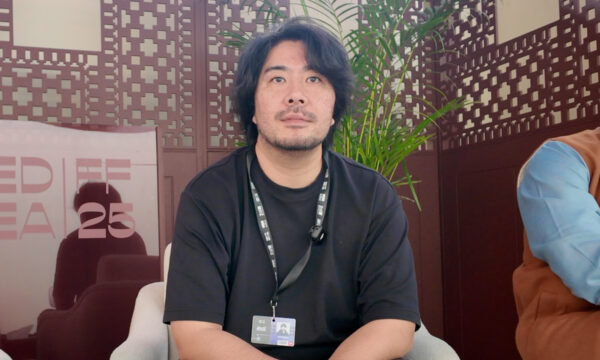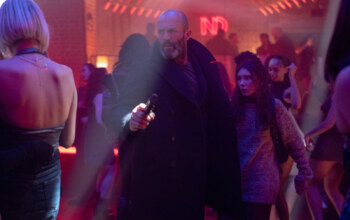Portobello

Premiering at Venice before its HBO Max release, Marco Bellocchio’s Portobello chronicles the dramatic downfall of 1980s TV host Enzo Tortora after he was accused of bearing ties to the Camorra. Before the first episode begins, viewers are offered a briefing on Tortora’s programme, his background and the Camorra. But it quickly becomes clear that Bellocchio’s introductions are unnecessary: the opening sequence establishes everything with visual clarity. A buzzing studio is captured in controlled chaos – staff scurrying, cameras rolling, anticipation mounting – until Tortora finally appears, not in person but mediated through a monitor. From the outset, Bellocchio signals that Tortora was always, in some sense, a television construction: a figure whose reality and performance blurred seamlessly.
The scene then cuts across Italy. Nuns huddle in a convent around a set; pensioners squint in a retirement home; a comically stuffy upper-class family gathers stiffly in their sitting room; and Giovanni Pandico (Lino Musella), a Camorra affiliate and important character in Tortora’s story, leans across a tiny, cramped table to watch beside his cellmate over dinner. These vignettes, alternating crisply between the studio’s colour high-definition and viewers’ pixelated black-and-white screens, showcase the show’s extraordinary reach more powerfully than any statistic could. Tortora proclaims live that 12 million are watching, but the declaration feels almost redundant: Bellocchio has already conveyed the sheer scale of his reach in the first four minutes, without didacticism. And while celebrity and organised crime have long rubbed shoulders, Tortora is distinct in his lack of mystique as a familiar presence in living rooms.
Portobello is most incisive when it stages parallels between spectacle and control. The soaring shots of the television studio mirror those of the prison, collapsing entertainment into incarceration, celebrity into surveillance. Tortora’s own camera crew films his arrest, turning a moment of crisis into a spectacle – an early glimpse of how the media treats scandal as entertainment. Bellocchio’s direction may never be subtle, and Portobello lays bare how television stages power, blurring news and entertainment, and showing audiences not as bystanders but as part of the performance itself.
Christina Yang
Portobello does not have a release date yet.
Read more reviews from our Venice Film Festival coverage here.
For further information about the event visit the Venice Film Festival website here.
Watch the trailer for Portobello here:


























Facebook
Twitter
Instagram
YouTube
RSS